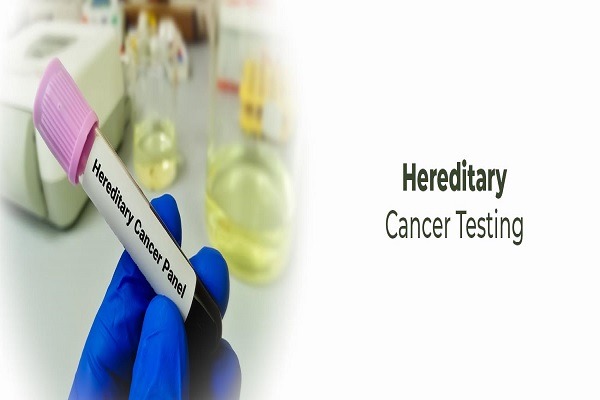Cancer is one of the most devastating diseases to affect someone. Whether it affects someone in your family or friend circle, it leaves a lasting and painful impact, both on the individual and their loved ones.
If there has been a case of cancer in your family, it is natural to worry about inheriting the same genes. Certain types of cancer are genetic and can be passed down through generations. That is why it is always wise to get hereditary cancer screening. Early detection can lead to timely detection and effective treatment.
If you are considering a genetic test, LifeCell’s Hereditary Cancer Gene Panel_ONCO offers a simple and reliable way to assess your risk of inherited cancer syndromes. The test analyses 106 genes associated with hereditary cancers.
This blog explores who should consider a hereditary cancer screening. Read on further to learn the key signs one should not ignore.
Why is Hereditary Cancer Screening Important?
- Personalised Risk Assessment
Genetic testing can detect specific gene mutations that pose a cancer risk. Getting tested for these particular mutations can ensure prompt detection.
- Proactive Steps and Treatment
Being well-informed about your high-risk cancer genes can help you seek expert consultations on regular cancer screenings and prevention. Those diagnosed with cancer can get genetic testing done to make informed treatment decisions.
- Family Planning
In case of confirmed gene mutations, individuals can get their spouses also tested for cancer genes to assess the risk of cancer inheritance.
Key Signs to Consider Hereditary Cancer Screening
Family History
- Multiple Cases in Family – Individuals who have had multiple cases of the same or related types of cancers in their family, particularly at a young age or before the age of 50, are more likely to have higher-risk cancer genes.
- Rare Cancers in Family – People with a family history of rare cancers, such as ovarian, pancreatic, male breast cancer or sarcoma, should also consider genetic testing for cancer risk.
Personal History
- Personal Cancer History – Individuals with a personal history of multiple cancers or with a diagnosis of cancer before the age of 50 should go in for hereditary cancer screening as well.
- Early Onset – Individuals with a personal cancer diagnosis, particularly before the age of 50, should get screened for prompt detection.
Ethnic Background
- Ashkenazi Jewish ancestry – People with Ashkenazi Jewish ancestry are also at a high cancer risk. Studies show that Ashkenazi Jewish women have a one in 40 chance of carrying a harmful variation of the BRCA1 or BRCA2 gene, which increases their risk of breast or ovarian cancer. They should consider BRCA gene testing early in their life for prompt diagnosis.
Other Factors
- Congenital Disabilities – Individuals with certain types of congenital disabilities may also have inherited cancer syndromes.
Future of Hereditary Cancer Care
Hereditary cancer screening not only assesses your inherited cancer risk but also provides a more personalised approach to cancer prevention and treatment.
As the newer cancer therapies target specific gene mutations, knowing your own genetic profile helps in accurate treatment. Individuals who have a family history of cancer, but cannot find known hereditary gene mutations, can make use of a relatively new tool, the polygenic risk scores – a score calculated using large-scale genetic data to find the overall risk.
Cancer vaccines are also being developed for people with known hereditary cancer syndromes. These vaccines immunise the body against the proposed cancer even before it starts forming.
In the coming years, genetics will help in the fight against cancer, from early risk detection to targeted treatments.
Summing Up
A family history of cancer or a personal diagnosis of cancer before the age of 50 are the key signs to get hereditary cancer screening. Discussing genetic testing with your healthcare provider helps you make informed decisions about your lifestyle, family planning and related treatment.
Cancer, when diagnosed at an early stage, offers a much better chance of complete recovery and effective treatment. If detected in the later stages, both treatment and recovery become more difficult, and medical expenses tend to rise significantly.
Get the Hereditary Cancer Gene Panel – ONCO from LifeCell to assess your genetic risk and take a proactive step towards safeguarding your health and your family’s future.


